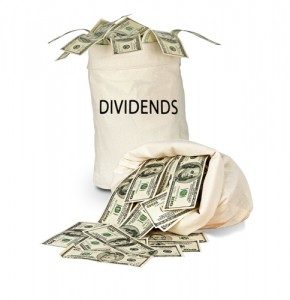
Dividends received from U.S., as well as other foreign, securities do not qualify for the Canadian dividend tax credit. This means that foreign dividends are taxed at your marginal tax rate, the same way that interest income would be.
Dividends received from U.S. stocks may be subject to withholding tax, and that dividend would be paid to you net of withholding taxes. The CRA allows Canadians to avoid double taxation, and thus if a 15% U.S. withholding tax was applied to the dividends received, a foreign tax credit can be claimed for 15%. If more than 15% tax was withheld, the CRA will not allow a larger foreign tax credit as the 15% rate is in accordance with the current Canada-U.S. Tax Treaty.
You should ensure that you convert both the foreign income and the withholding tax amounts to Canadian dollars. Depending on the number of transactions, you will need to use either the Bank of Canada (BoC) exchange rate at the transaction date, or the average foreign exchange rate for the year.
A benefit of holding U.S. securities within your RRSP or RRIF accounts is that the dividend income will not be subject to withholding tax. Note that other registered accounts do not receive the same treatment, mainly (TFSA and RESP).
Tip: Due to the benefit of the dividend tax credit received on dividends received from eligible Canadian securities, the after-tax return may be greater when investing in Canadian vs. U.S. stocks. We recommend that you consult a qualified investment adviser prior to making any investment decisions.

